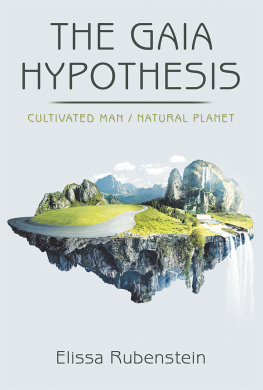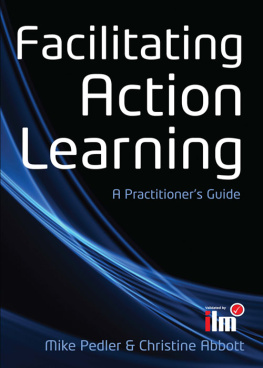This book is about personal changes which could evolve from a rejection of the industrial society. It is not about doom or catastrophe , but suggests an optimistic expansion of human consciousness which could develop from life in a post-industrial age.
It is also about a goddess.
I have assumed, right from the beginning, that everyone knows all about environmental pollution and that everyone is fully aware that our present activities are not only destroying the life process of our planet, but also using up its resources in a way which makes our future wholly unsustainable.
I have also assumed that no aspect of this rapidly darkening situation will improve without radical alterations to the way we live, and that the changes necessary will amount to an almost complete rejection of the values and artefacts of the industrial society.
But there is no point in proposing changes unless they lead to an improvement in human creativity and happiness; and it is my strong belief that if we can relearn a way of life which is, as far as possible, removed from the industrial process, then we can not only live within the limits set by the earth, but also reawaken an expanded sense of vision and consciousness which our ancestors once had as a natural birthright. A vision which we have almost entirely suppressed by accepting the glittering products of industrialism.
Before I began to write, I was seized with an unbearable frustration and anger about the destructive effect we are having on the planet. And then I realised the very obvious truth that the anger and frustration were both directed against myself, since I was fully parasitic upon the industrial society which I hold to be the main villain of the piece. And so the book is about changes which are practicable on an individual level and changes which I am in the process of carrying out for myself.
I now intend to live in a way that has as little to do with the industrial society as possible. For I believe that when historians of the future assess its overall effect on people, they will decide that this society was not only dehumanising and despoliating , but above all overwhelmingly ugly.
Nothing is perfect and I am finding it difficult to abandon the ordinary pursuits of a relatively affluent middle class hedonist. So the book is partly a way of making a personal and public declaration which will keep me to a continued course of action and so reduce my personal level of hypocrisy.
The most serious error of exploitative technologists has been to assume that nature is neutral, unthinking and passive: merely a complex process to be dominated and manipulated. I hold that the reverse is true and that the life process around us is driven by an intelligence which is fully capable of recognising and repairing damage done to itself.
And so this book is also about a revolution and a revolutionary , but it is not about, ideologies of the left or the right and not about human-centred ideas of justice and equality. No economic analyses and no classifications of relative human merit are offered , but ideas about survival are.
It is my main thesis that a new revolutionary has awakened, beside whom human pretenders to the role are as children.
This entity is the most determined and dangerous opponent ever to face us and needs no party, arms or supporters. It functions adequately by itself.
It is neither kind nor cruel, moral nor immoral.
It cares nothing for the continuance of the human race and can design the death of man, woman or child as and when appropriate.
It possesses ancient wisdom, is wholly integrated in its purpose and cannot be defeated, but only joined.
It is ageless and non-ageing and has one purpose and one purpose only.
And so I have posed the problems of survival against the inhuman wrath of this entity and given an account of the changes demanded by our final and most determined opponent.
I do not, intend what follows to be a moral statement, but an account first of a route to survival and then of a means of re-establishing a lost sense of vision, which was once as natural to us as the ability to see with our eyes.
The name of the revolutionary is Gaia.
The quotation on page 65 comes from Poems 19131956 by Bertolt Brecht. Edited by John Willett and Ralf Manheim.
Copyright Eyre/Methuen 1976
Gaia is one of the names given to the goddess of the earth, and it was once believed that she was the creator of Gods, the earth-mother and bestower of all abundance. She was also called Ge or Gaea by other cultures and was prayed to as Dano, Nammu or Coatlicul.
Myths of the earth goddess differ in detail, but all have the common idea that the earth is not a dead body but is inhabited by a spirit which is its life and soul All agree that the earth spirit is female and will give nourishment to those who shelter in her womb.
I use the name Gaia not to propose a human feminine goddess, but to encompass the idea that the entire living pelt of our planet, its thin green rind of life, is actually one single life-form with senses, intelligence and the power to act.
Stretching from man to the worm, from the fishes of the abyss to the Yoghurt bacterium, and from the moulds of decay to the birds riding the sky, I hold that there is but one single interwoven web of life and that our own kind was, until recently, an integral part of this single magnificent entity.
I have chosen Gaia rather than the other names because I think it is a beautiful name and extends naturally into the idea of Gaian living or Gaianism.
We live in a society based upon science and technology and so it is here that we must look for the roots of error and of change. But first I want to make a clear distinction between different breeds of scientists and technologists.
During my career as a research scientist I met and was happily influenced by men and women whose main purpose in life was to understand the beauties of the natural world in their own terms of respectful reason: people who fell in love with an aspect of nature and who sought to understand it a little better.
To these imaginative people I would re-apply the old name, natural philosophers, as my own act of respect; but they are as different as it is possible to be from those I shall call the technologist-toymakers.
The word technologist, is usually defined to mean a practitioner of the industrial arts, but here I use the term to describe a variant of the toolmaker scientist; the person who sees the process of reason as a means only to the end of a new structure or tool; a person without values, respect or love; a person who creates a system or a tool just because it is possible. This is the technologist-toymaker, whose prime ethos of exploitation is completely opposed to the loving and respectful credo of the natural philosopher.
The technologist-toymaker is the designer of the electric toothbrush and the anti-personnel shrapnel grenade: toys for tearing the gums or the bodies of people.
This compulsive and often exultant toolmaking has led to the celebration of reductionism, which is a method of thinking based on the idea that the whole can be fully understood by analysing its parts.
Reductionism is opposed to holism, which is based on the concept that the whole is more than the sum of the parts, and that true understanding can emerge only by making this assumption.
Reductionists also offer the fiction that life began only as a development of chemical interactions; that the first cells emerged by accident in a warm primeval soup, and that no other factors need to be considered.
The toymaker reductionist further holds that the earth and the universe is a neutral insensate aggregation of energy and matter that has no connection with or interest in the affairs of men. Reductionists thus assert that there are no values in the universe; no beauty, no rhythm and no regard, care or love, just systems for analysis and exploitation.







